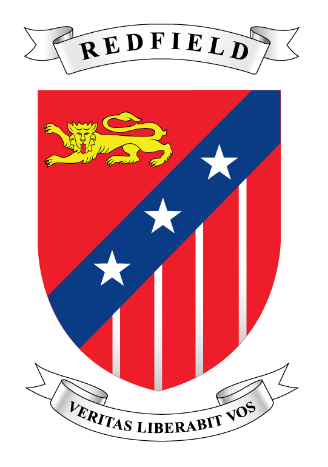While you can find a comprehensive view of the College through this website, a walk around in person is always better.
Please come along to one of our Open Days which are scheduled each term.
Matthew Aldous
Redfield College Headmaster

While you can find a comprehensive view of the College through this website, a walk around in person is always better.
Please come along to one of our Open Days which are scheduled each term.
Matthew Aldous
Redfield College Headmaster

Redfield College is an independent boys’ school teaching the Catholic faith, situated on 10 hectares in Dural, in the north-west of Sydney. The College was founded in 1986 by a group of parents and teachers, the Pared Foundation, on the principles that parents are the primary educators of their children, and that schools exist to give parents every support. This support is found in the quality of Redfield teachers, the way staff work with students and parents in a unique 1:1 mentoring system, the emphasis on character development and virtues in the curriculum, and in the concern that staff have for school parents. Home and school are united.
Parents as the primary educators
Many schools today would agree that parents are the first educators in principle, but many schools prefer minimal contact with parents which is largely restricted to discussing academic progress. Redfield College seeks to give parents every support in academics and beyond. In particular, schools have a duty to reinforce a parent's role in passing on values and building character. At Redfield a number of practical approaches ensure that the College works very closely with each boy's parents, ensuring that parents are, in fact, the first educators.
Consistency between home and school
Children need consistency between parents, and between home and school. Parents need to ensure that the other inputs in their children's lives are providing a consistent message. Children imitate those who take an interest in them… for better or for worse. Children imitate whoever they spend time with, virtually or in real life. Just as responsible parents try to give the best example to their children, teachers also have a duty to do so. The staff at Redfield undergo professional development so that they provide the best example for your son. The staff know that their personal example is important because children copy people they admire. Your son's peer group can be the decisive influence in their life, so parents are encouraged to get to know the parents of their own children’s friends, and as a school we facilitate this in a number of ways.
Education tailored to the individual person
Effective education is personal and addresses all aspects of a person. Certainly, a school must be concerned about studies so as to prepare students for a professional life outside of school, but we are also consider the character and happiness of our students after graduation. We believe that doors will always open to a man who has learned to offer his best. The best education is the development of the whole person: head and heart, mind and will. The small class sizes and our 1:1 mentoring system guarantees the needs of the individual are understood and addressed. Teachers meet regularly with mentors to review each student's progress in each subject, the focus being on helping each individual reach his potential.
Virtues as the building blocks of character
At Redfield, great stress is placed on developing human virtues, or strength of character, because these virtues (or good habits) enable a person to be self-directing in life. Freedom is not seen as mere freedom from constraints but as a capacity to carry noble convictions into action. We place great emphasis on sincerity and generosity as key virtues for the intellect and the will; the College motto itself is Veritas Liberabit Vos, the truth will set you free. Symbolised on the College shield are the four cardinal virtues, that map out the key fields of human action: Prudence governing our capacities to assess situations objectively and honestly; Justice governing our interactions with others; Temperance or the capacity to manage our own impulses, appetites and passions; and Fortitude, our ability to strive against external challenges in pursuit of noble goals. The family is also the environment par excellence for fostering virtue.
More videos
"(Redfield) mentors are teachers, who apart from their classroom teaching take on an additional professional task that requires specific study and expertise. They are selected to fulfill this task according to individual preference, professional commitments, and personal suitability for working with individual students and parents. But all members of staff, whether they are mentors or not, are involved in a team approach based on the common awareness that they are educators of the whole person, above all, by their personal example of their own virtues."
Extract from “Parents for Education”
Virginia Monagle in Kappa Delta Phi Record (Fall 1993)
The personalised Mentoring System is the most distinctive feature of Redfield. The mentors support parents in exercising their duty as primary educators. An individual mentor, from amongst the teachers of the school, is appointed to each student and given the necessary training to do the job.
The mentor meets with a student fortnightly and with the parents termly, to review progress and establish personal goals. The focus is on leading the student to think for himself and to work on acquiring the balanced strengths that he will need in adult life. Through his rapport and friendship with the student, the mentor provides an effective service of personal example, guidance, and advice. He helps your son to develop positive habits and areas of character development such as responsibility, thoughtfulness and good use of time.
"In my 10 years at Redfield College, I was undeservedly blessed to have phenomenal mentors. They would consider themselves unremarkable but their coaching was essential to my growth in knowing who I was and what I thought was important to a meaningful life, building my productive work habits, the value and primacy of deep and personal relationship with God, my family and friends...all the above were done with a genuine sense of care for and investment in me as an individual. These lessons have sustained me.
Over 25 years have passed and I would still seek counsel from either man." - Joe James, Redfield College Old Boy
Parents comment on how helpful it is, particularly when their sons are in their teenage years, to be able to rely on a trusted mentor to reinforce key values with their son. The mentor is ideally placed to coordinate, on behalf of the parents, the efforts of all who contribute to their son's education. He is able to provide objective suggestions and useful observations for both the parents and the student's teachers.
The Mentoring System at Redfield is unique to the Pared schools in Australia. As far as we know there is no other mentoring system that is one on one, for all students, and involves all parents in regular interviews, in which mentors are prepared to offer all the time that is needed to students when a student has a particular need.




The Redfield Leadership and Community Service Program is setting out to achieve this. We hope that other schools pick up on the integrated and developmental structure of the program, the insistence on character education, and on the need for ongoing experiences of service, and so that this program can be a beacon for others to follow.
The Program is a continuation and further development of the existing character education program at the school.
The Program is directed to all the boys at the school and extends to the old boys of the school too, being delivered through curriculum, a wide variety of workshops and visiting speakers, external mentored placements and ongoing experiences for community service.
The Program provides Leadership Education that emphasises character and the specific skills of leadership. We say that true leadership is the product of virtues and specific skills.
The class council is composed of the class teacher, a class secretary, a sub-secretary, four team captains and on a rare occasion one or two invited members from the class.
Aims:
To make the students feel responsible to some degree for the running of the class; a forum for students to learn to work cooperatively with others towards a common goal: the good functioning of their class. to make students think about the good of other people, their classmates, teachers and their school. to educate the students on how to participate effectively in meetings and the dynamics and procedures of such gatherings. to help students respect other people's opinions.
Objectives:
To ensure the good functioning of the class. to discuss problems in the class and attempt to find effective solutions for them.
Leadership Opportunities for Students
Class Camps and Seminars
All school camps, seminars and Father/Son camps organized by Redfield are formational activities which reinforce the teaching of virtues, in particular, the spirit of service to other people. They give everybody, who participate in these camps and seminars, the opportunity to get to know other people in greater depth. In addition, Class Camps facilitate the effectiveness of the mentoring system as they provide mentoring opportunities and assist mentors in getting to know the character of each boy in depth. Finally the nature of the camp and its location are used to provide appropriate educational experiences & activities.
Community Service in the College
Students from Years 2-12 are involved in a wide variety of community service experiences. Theory about serving others is insufficient; young people need to develop the wherewithal to be persons of action and not end up being nice armchair idealists.
The aim is to build not only nice attitudes, not only conscience, but to also provide regular positive experiences of service, so that students experience the happiness of helping others and develop well established habits of compassion. Good intentions never put bread on a table. We are told in the Gospels, He went about doing good, and it is not a coincidence that, even before the birth of Jesus Christ, Cicero observed, Men were brought into existence for the sake of others, that they might do one another good. The proof is always in the doing… whether you are Christian or non-Christian.
Rationale
The overall aim of the community service at the school is to develop in the boys a spirit of generosity in thinking about the needs of others. The programs require the boys to give up some of their time to do something for others in the community.
The Programs
The various community service activities that are organised under the auspice of the Leadership Program, and that involve all boys in a wide variety of experiences, include:
Redfield has frequently hosted visits from, and sent students to, Mikawadai College in Nagasaki, Japan, Colegio Viaro in Barcelona, Colegio Gaztelueta in Bilbao, Colegio Los Robles in Oviedo, and Monte VI in Montevideo & Colegio Penalba in Valladolid Uruguay.
Since 1989 Japanese students have been hosted at Redfield in class groups.
In recent years small groups of Redfield students from Year 9 travel to Europe, Asia and South America for a period of 6 weeks. The aim of the trips to Spanish-speaking countries is to increase the boys’ fluency with Spanish and enable them to experience a different culture.
Through the various service activities, the school hopes that the boys will learn to develop an awareness of the needs of those around them and of the community, whereby they then feel confident in addressing those needs in later life.
The inspiration behind Redfield
Josemaria Escriva, born in Spain in 1902 and ordained a priest in 1926, was the founder of Opus Dei meaning “Work of God”.
Opus Dei’s mission is to promote among men and women of all walks of life an awareness that everyone is called to holiness in the midst of ordinary life: through their daily work, family life and social relations. In 1982 Pope John Paul II established Opus Dei as a personal prelature of the Catholic Church. Josemaria Escriva was beatified by the Pope in 1992 and canonised in a ceremony in front of some 250,000 persons in St Peter’s Square in 2002.
Saint Josemaria on Family and Education
In line with Catholic teaching, Saint Josemaria Escriva taught that parents have a duty to oversee the education of their children. He taught that schools primarily support parents who are the primary educators of their children and that parents should work in cooperation with the schools their children attended. These teachings have now inspired the development of over 150 schools across dozens of countries.
In 1980 a group of parents and teachers set up the Parents for Education Foundation in Sydney, Australia, with a view to starting schools that could work in close support of parents. In 1982 Tangara School for Girls started with 17 students, and in 1986, Redfield was founded. The school chaplains at the Pared schools belong to Opus Dei. In all other aspects, the schools are the responsibilities of the Board of Pared or their own administrations.

The Redfield Chaplaincy offers spiritual support for the students, parents and teachers of the school community. Mass is celebrated in the College Chapel on weekdays at 10:15am.
The sacrament of Confession is available daily from 8.00-8.30am, after weekday Mass, during religion periods, and by appointment with the Chaplains.
The Chaplains also give regular talks to student groups and offer spiritual guidance to individual members of the school community.
Solemn Benediction and Exposition is celebrated every first Friday of the Month, and a Eucharistic procession is held annually near the feast of Corpus Christi.
Whole School Masses are celebrated at the beginning of the academic year, as well as on Ash Wednesday, the Feast of the Assumption, and All Saints Day. The Chaplaincy also hosts an annual family picnic and Rosary during May.
Fr Phillip Elias
School Chaplain
Our schools value a single-sex education and draw on this to provide for the pastoral and academic needs that are unique to young men and women.
Preparatory-Year 1 boys attend classes on Tangara Campus. Boys only from Year 2-12.
Co-ed from Preparatory to Year 1. Girls only from Year 2-12.
One of the unique benefits offered to families whose children attend both Tangara and Redfield is the sibling concessions (including the building levy and fees) apply for concurrent enrolments across Tangara and Redfield. For example, a family pays the Family Building Levy once even though they have children enrolled at the same time at both schools.

If you are interested in working for Redfield College, we advertise employment opportunities via seek.com.au.
>> Click here for a list of current opportunities at Redfield College
If there are no current opportunities, you may wish to submit an expression of interest for future roles with the School’s HR Team at hr@pared.edu.au